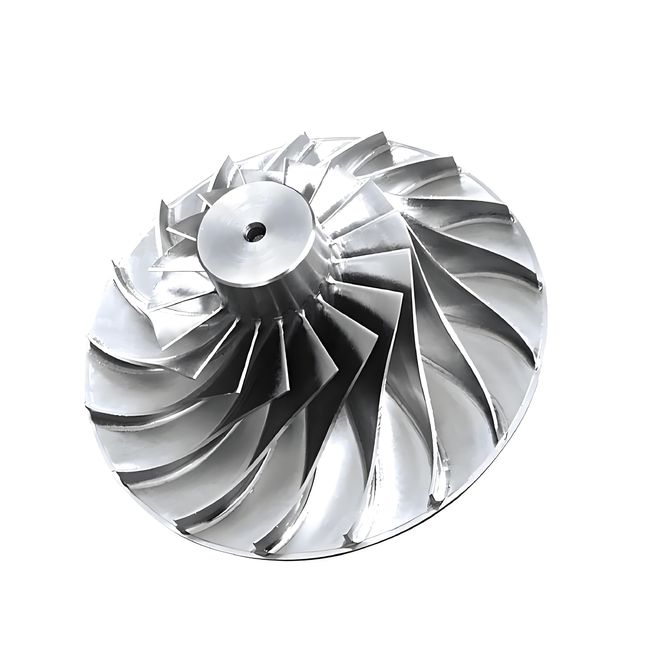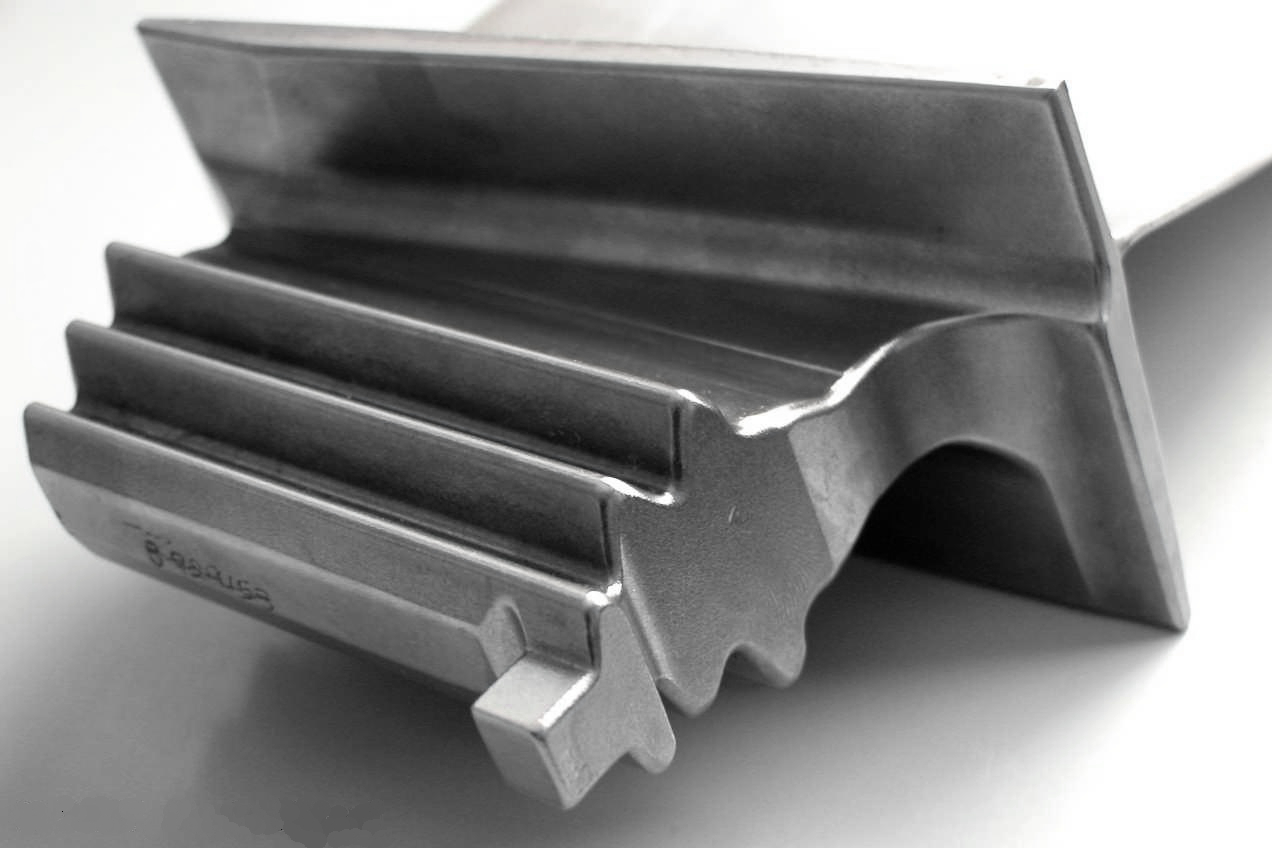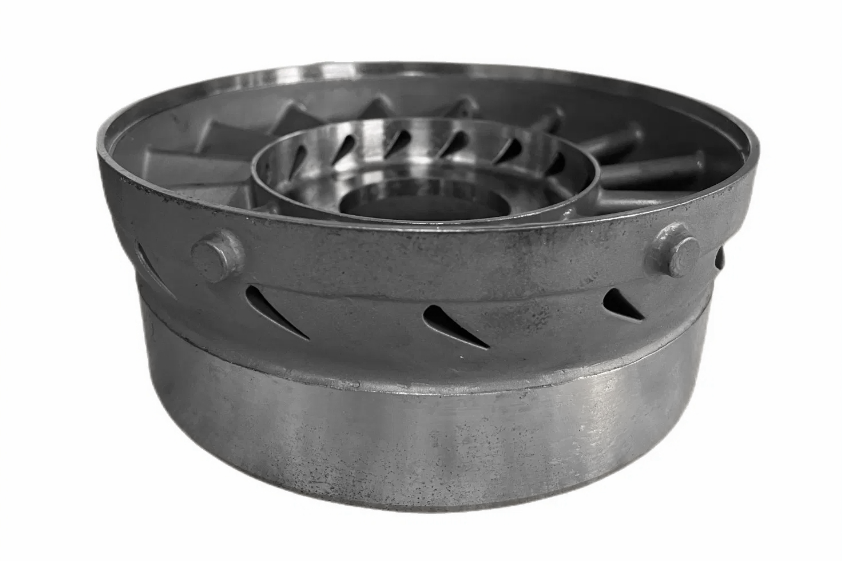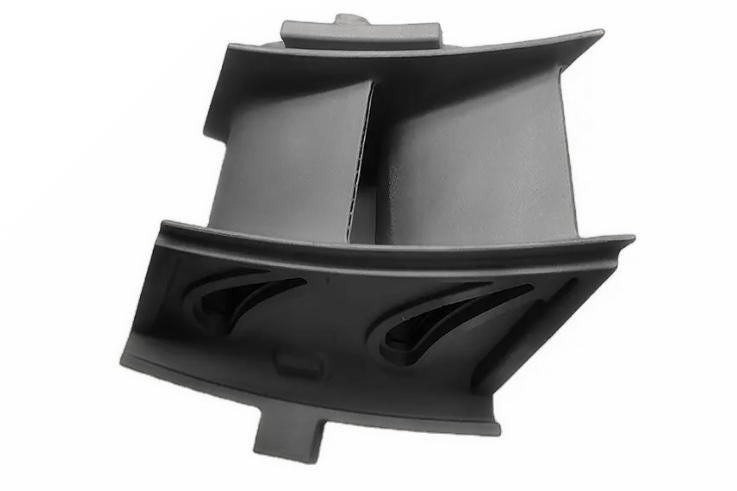Ti-6Al-2Sn-4Zr-2Mo
About Ti-6Al-2Sn-4Zr-2Mo Superalloy
Name and Equivalent Name
Ti-6Al-2Sn-4Zr-2Mo, also known as Titanium Grade 6Al-2Sn-4Zr-2Mo, aligns with UNS R54620 and conforms to ASTM B348, B265, AMS 4971, and ASME SB-348 standards. This alloy is primarily used in aerospace and thermal applications due to its superior strength and fatigue performance at elevated temperatures.
Ti-6Al-2Sn-4Zr-2Mo Basic Introduction
Ti-6Al-2Sn-4Zr-2Mo is a near-alpha titanium alloy developed for applications requiring high thermal and mechanical stability. Its exceptional fatigue resistance and creep strength at temperatures up to 500°C make it suitable for demanding environments. This alloy balances lightweight properties with durability, ensuring reliable performance in aerospace engines and structural components.
The alloy’s resistance to oxidation and corrosion further extends its usage in high-performance industries, including chemical processing and energy sectors. Ti-6Al-2Sn-4Zr-2Mo is often selected for components that experience thermal cycling, ensuring long-term reliability under continuous stress.

Alternative Superalloys of Ti-6Al-2Sn-4Zr-2Mo
Ti-6Al-4V is a viable alternative with improved weldability but slightly lower thermal stability. Ti-6Al-2Sn-4Zr-6Mo offers enhanced creep resistance, making it suitable for more extreme high-temperature conditions.
Inconel 718 provides superior oxidation resistance but adds weight and complexity. Ti-3Al-2.5Sn offers better formability, making it preferable for lower-stress environments, though it sacrifices some strength.
Ti-6Al-2Sn-4Zr-2Mo Design Intention
The design of Ti-6Al-2Sn-4Zr-2Mo aims to meet the needs of high-temperature aerospace applications by delivering a lightweight alloy with excellent mechanical properties. It was specifically developed to resist thermal fatigue and creep, ensuring durability in components exposed to extreme operating conditions.
This alloy balances tensile strength and weight, making it a preferred choice for aircraft engines, airframes, and other critical aerospace parts. Including molybdenum and zirconium further enhances the alloy’s corrosion resistance and stability.
Ti-6Al-2Sn-4Zr-2Mo Chemical Composition
The chemical composition of Ti-6Al-2Sn-4Zr-2Mo enhances its mechanical and thermal properties, ensuring reliability under extreme conditions.
Element | Content (wt%) |
|---|---|
Aluminum (Al) | 5.5 – 6.75 |
Tin (Sn) | 1.75 – 2.25 |
Zirconium (Zr) | 3.5 – 5.0 |
Molybdenum (Mo) | 1.75 – 2.25 |
Iron (Fe) | ≤ 0.20 |
Ti-6Al-2Sn-4Zr-2Mo Physical Properties
Ti-6Al-2Sn-4Zr-2Mo offers a unique combination of strength and thermal stability.
Property | Value |
|---|---|
Density | 4.54 g/cm³ |
Melting Point | 1645°C |
Thermal Conductivity | 6.6 W/(m·K) |
Elastic Modulus | 110 – 115 GPa |
Metallographic Structure of Ti-6Al-2Sn-4Zr-2Mo Superalloy
Ti-6Al-2Sn-4Zr-2Mo is a near-alpha titanium alloy characterized by a stable microstructure, which ensures its strength at elevated temperatures. This alloy exhibits a uniform grain structure, enhancing fatigue resistance and mechanical reliability in high-stress applications.
Including aluminum and tin improves oxidation resistance, while zirconium and molybdenum contribute to creep resistance. This metallographic structure makes Ti-6Al-2Sn-4Zr-2Mo particularly suitable for aerospace components, ensuring durability under thermal cycling.
Ti-6Al-2Sn-4Zr-2Mo Mechanical Properties
The mechanical properties of Ti-6Al-2Sn-4Zr-2Mo are ideal for high-performance applications.
Property | Value |
|---|---|
Tensile Strength | ~1000 MPa |
Yield Strength | 850 – 900 MPa |
Hardness | 35 – 40 HRC |
Elongation | ~15% |
Key Features of Ti-6Al-2Sn-4Zr-2Mo Superalloy
High Thermal Resistance Ti-6Al-2Sn-4Zr-2Mo performs exceptionally well at temperatures up to 500°C, ensuring reliability in high-heat environments.
Superior Fatigue Performance This alloy provides excellent fatigue resistance, making it ideal for components exposed to cyclic stress in aerospace applications.
Lightweight and Strong With a high strength-to-weight ratio, Ti-6Al-2Sn-4Zr-2Mo offers structural reliability without adding unnecessary weight.
Corrosion and Oxidation Resistance The alloy is resistant to corrosion and oxidation, making it suitable for applications in harsh environments.
Creep Resistance Ti-6Al-2Sn-4Zr-2Mo offers outstanding creep resistance, ensuring durability under sustained thermal loads, particularly at 450°C.
Ti-6Al-2Sn-4Zr-2Mo Superalloy’s Machinability
Vacuum Investment Casting: Ti-6Al-2Sn-4Zr-2Mo is not ideal for Vacuum Investment Casting due to challenges in maintaining surface quality during casting, as the alloy is prone to alpha-case contamination.
Single Crystal Casting: Single Crystal Casting is not recommended for this alloy since it is designed for near-alpha phase performance rather than single-crystal applications.
Equiaxed Crystal Casting: Equiaxed Crystal Casting is suitable for Ti-6Al-2Sn-4Zr-2Mo, allowing uniform grain structures that enhance fatigue performance in high-stress applications.
Directional Casting: Superalloy Directional Casting is not preferred for Ti-6Al-2Sn-4Zr-2Mo due to its optimized microstructure better suited for equiaxed forms.
Powder Metallurgy Turbine Disc: This alloy is not commonly used in Powder Metallurgy Turbine Disc applications, as it excels more in forged components.
Precision Forging: Superalloy Precision Forging is well-suited for Ti-6Al-2Sn-4Zr-2Mo, improving strength and fatigue resistance for aerospace components.
3D Printing: Superalloy 3D Printing of Ti-6Al-2Sn-4Zr-2Mo is feasible but requires precise stress management to avoid structural defects.
CNC Machining: CNC Machining of this alloy is efficient, enabling the production of high-precision aerospace components.
Superalloy Welding: Superalloy Welding can be challenging with Ti-6Al-2Sn-4Zr-2Mo but is possible with controlled heat input to prevent cracking.
Hot Isostatic Pressing (HIP): Hot Isostatic Pressing (HIP) eliminates porosity in the alloy, improving fatigue performance.
Ti-6Al-2Sn-4Zr-2Mo Superalloy Applications
Aerospace and Aviation: Aerospace and Aviation industries use Ti-6Al-2Sn-4Zr-2Mo for engine components and airframes, leveraging its thermal resistance and fatigue performance.
Power Generation: In Power Generation, the alloy is utilized in turbines and other high-temperature components.
Oil and Gas: The Oil and Gas sector benefits from the alloy’s corrosion resistance in harsh environments.
Energy: Energy systems use this alloy in components subjected to thermal cycling.
Marine: In marine applications, the alloy offers excellent corrosion resistance to propeller shafts and underwater systems.
Mining: Mining uses Ti-6Al-2Sn-4Zr-2Mo for its wear resistance in drill bits and pump components.
Automotive: Automotive industries employ alloys in performance-critical parts like engine components.
Chemical Processing: Chemical Processing applications include reactors and pipelines due to the alloy’s chemical stability.
Pharmaceutical and Food: Pharmaceutical and Food industries utilize the alloy in hygienic processing equipment for its corrosion resistance.
Military and Defense: Military and Defense industries leverage the alloy for lightweight armor and aerospace components.
Nuclear: Nuclear facilities use this alloy in reactor components, ensuring durability under radiation exposure.
When to Choose Ti-6Al-2Sn-4Zr-2Mo Superalloy
Custom superalloy parts made from Ti-6Al-2Sn-4Zr-2Mo are ideal for aerospace, power generation, and energy applications requiring high thermal and fatigue resistance. This alloy is essential where long-term performance under cyclic loads is critical, such as in airframes, turbines, and energy systems. Its corrosion and oxidation resistance also make it a viable option for marine and chemical processing industries. Combining strength, fatigue performance, and thermal stability ensures reliability across demanding environments.



